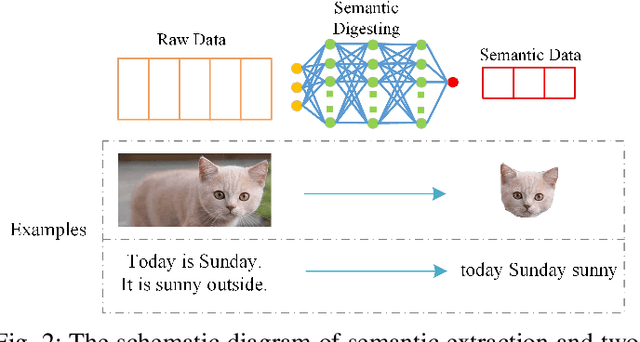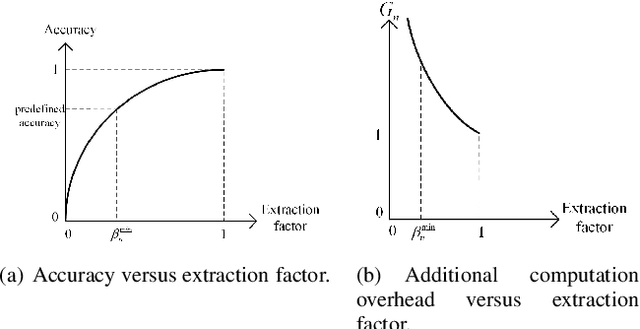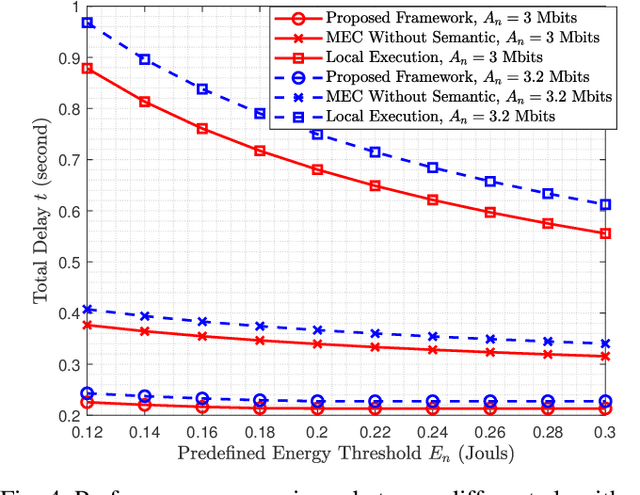Yuntao Hu
Online Resource Allocation for Semantic-Aware Edge Computing Systems
Sep 25, 2023Abstract:In this paper, we propose a semantic-aware joint communication and computation resource allocation framework for MEC systems. In the considered system, random tasks arrive at each terminal device (TD), which needs to be computed locally or offloaded to the MEC server. To further release the transmission burden, each TD sends the small-size extracted semantic information of tasks to the server instead of the original large-size raw data. An optimization problem of joint semanticaware division factor, communication and computation resource management is formulated. The problem aims to minimize the energy consumption of the whole system, while satisfying longterm delay and processing rate constraints. To solve this problem, an online low-complexity algorithm is proposed. In particular, Lyapunov optimization is utilized to decompose the original coupled long-term problem into a series of decoupled deterministic problems without requiring the realizations of future task arrivals and channel gains. Then, the block coordinate descent method and successive convex approximation algorithm are adopted to solve the current time slot deterministic problem by observing the current system states. Moreover, the closed-form optimal solution of each optimization variable is provided. Simulation results show that the proposed algorithm yields up to 41.8% energy reduction compared to its counterpart without semantic-aware allocation.
Resource Allocation for Semantic-Aware Mobile Edge Computing Systems
Sep 21, 2023



Abstract:In this paper, a semantic-aware joint communication and computation resource allocation framework is proposed for mobile edge computing (MEC) systems. In the considered system, each terminal device (TD) has a computation task, which needs to be executed by offloading to the MEC server. To further decrease the transmission burden, each TD sends the small-size extracted semantic information of tasks to the server instead of the large-size raw data. An optimization problem of joint semantic-aware division factor, communication and computation resource management is formulated. The problem aims to minimize the maximum execution delay of all TDs while satisfying energy consumption constraints. The original non-convex problem is transformed into a convex one based on the geometric programming and the optimal solution is obtained by the alternating optimization algorithm. Moreover, the closed-form optimal solution of the semantic extraction factor is derived. Simulation results show that the proposed algorithm yields up to 37.10% delay reduction compared with the benchmark algorithm without semantic-aware allocation. Furthermore, small semantic extraction factors are preferred in the case of large task sizes and poor channel conditions.
 Add to Chrome
Add to Chrome Add to Firefox
Add to Firefox Add to Edge
Add to Edge